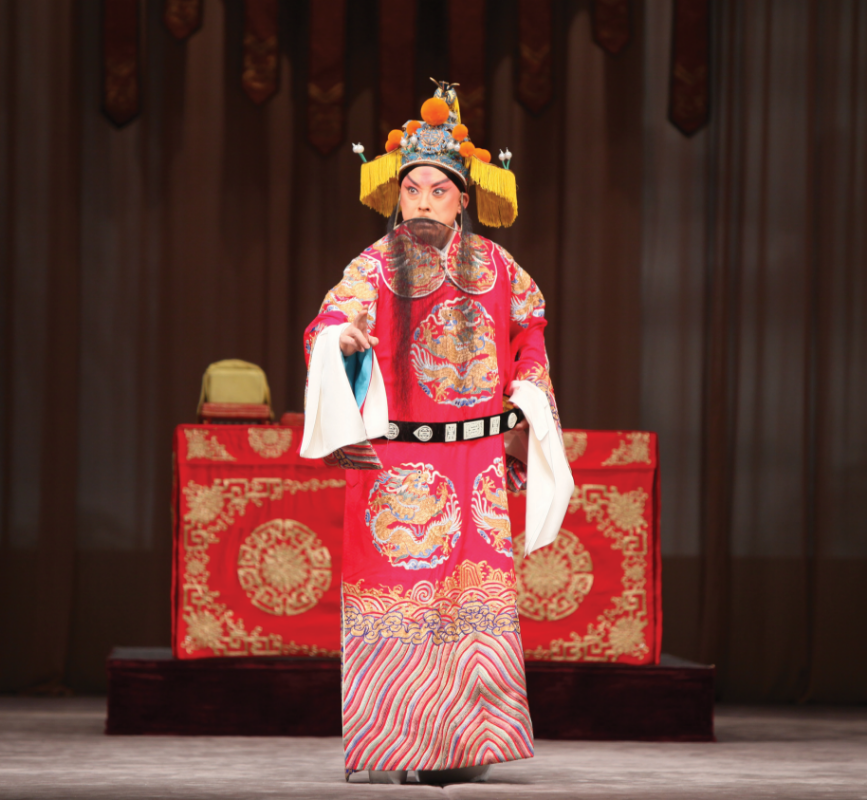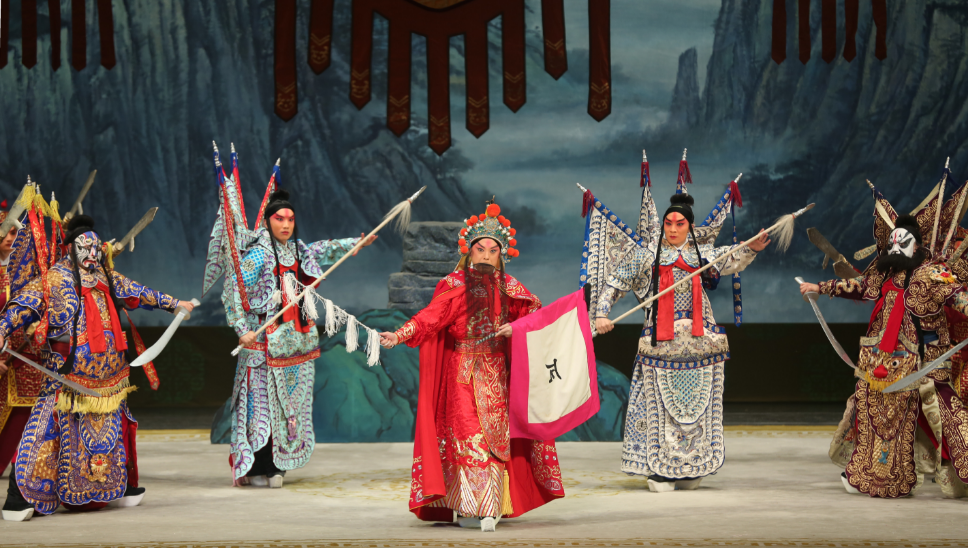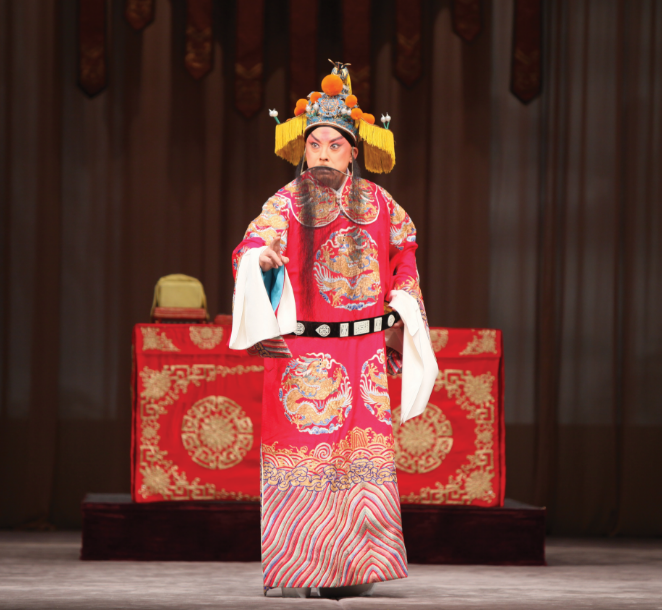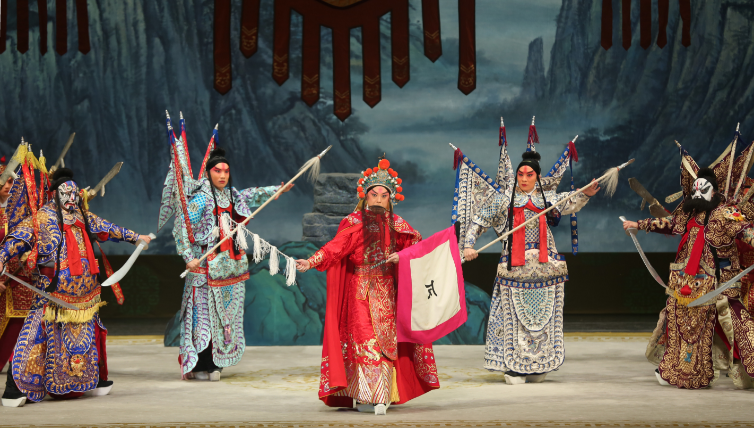
China Chic and the
Chinese cultural
treasure
The China Chic trend has been around for over four years, and during this time many different domestic brands have integrated unique Chinese aesthetical and traditional elements, taking young people’s love and interest in traditional culture to a new level. What we can also see in this trend, is that the younger generation is slowly becoming more acquainted with Peking opera in various aspects. The following article will hopefully do the same for our readers.
Peking opera is now widely exposed on television, in numerous Chinese dramas and variety shows. For instance, in the Story of Yanxi Palace, the most popular TV series in 2018, the opera-loving noble consort Gao performed The Drunken Royal Concubine and the aesthetics of that scene is still relished by many of today’s viewers. The acclaimed operatic actress Wang Peiyu has recently presented her Peking Opera-themed talk show See ‘Yu’ on Stage, which was well received among the young audience. Guo Xiaoqing, a major content creator at Douyin and Bilibili, has uploaded a number of amusing short videos that revolve around the genre, and one that features the dressing process of a qingyi actress has gained the most popularity, attracting over 300 million hits. Many other crossover products integrating Peking Opera elements are also available in the market, such as high-end beauty face masks launched by the China National Peking Opera Company (CNPOC), which are both fun and functional with their designs based on the four basic roles: sheng (male), dan (female), jing (male painted face) and chou (clown). The online game Honour of Kings has introduced the ‘skins’ of opera characters Xiang Yu and Consort Yu, while another game Shining Nikki has launched the character Mu Guiying in collaboration with the CNPOC.
China Chic has opened a new door for Peking Opera, arousing the curiosity of a wider young audience about this art form. If you are amongst them, you can anticipate CNPOC’s performance in Macao in December and personally experience this captivating artistic expression. Originally named Peking Opera Theatre of China, the CNPOC was founded in 1955 by Mei Lanfang, its first president. Their upcoming performance in town will be led by celebrated veteran actors Yu Kuizhi and Li Shengsu: the former, a top artist hailed in the circle as the ‘star laosheng (respectable middle-aged male role), who might be rather familiar to many of us, and the latter, who will play the leading dan (female role), is an heir of the Mei School (created by Mei Lanfang). The works to be co-starred by the two artists in this tour include Farewell, My Concubine and The Fiery Red Horse.
A film released in 1993, Farewell my Concubine, directed by Chen Kaige, has made the opera piece a household name. The historical tale has also inspired many other films, soap operas and theatrical works, such as Yang Liping’s stunning dance production Under Siege, staged at CCM in 2019. The story of Farewell, My Concubine should be familiar to everyone: Liu Bang, the emperor of Han, fought against Xiang Yu, the sovereign of Western Chu, over the rulership of the territory. When Xiang became trapped in Gaixia, clearly knowing how dire the situation was, Consort Yu commits suicide to ease the emotional burden on her lover. Virtually defeated in battle, ashamed to face his fellow countrymen, Xiang eventually slit his own throat by the Wu River. As for the other show, The Fiery Red Horse, it is a depiction of a story involving Xue Pinggui and Wang Baochuan, in the Tang dynasty, who reunited after having lost contact for 18 years. With the aid of Princess Daizhan, Xue conquered the city of Chang’an (the ancient name of Xian) and proclaimed himself the emperor. Xue Pinggui and The Fiery Red Horse are well-known works among the repertoire of different Chinese opera genres including Ping Opera and Hebei Bangzi; in Taiwan Xue Pinggui is the most famous piece in Gezi Opera and indeed a popular tale. The story has also been adapted into films and TV series, popular across mainland China, Hong Kong, Macao and Taiwan. These two operatic classics are ideal for both aficionados and new audiences.



